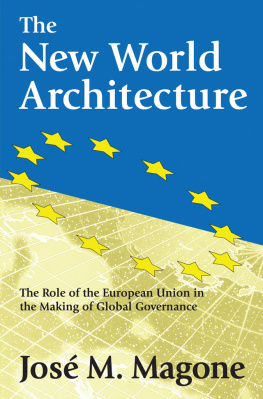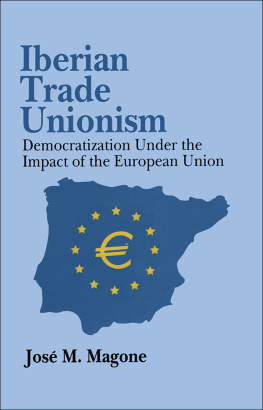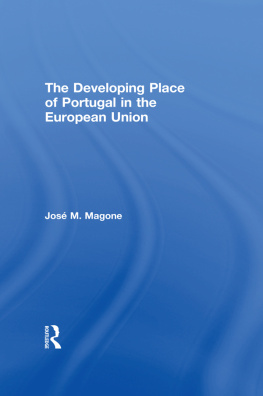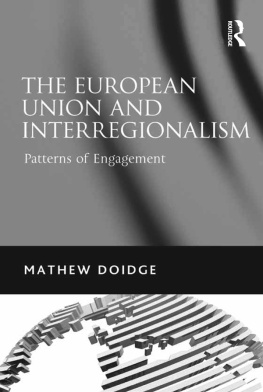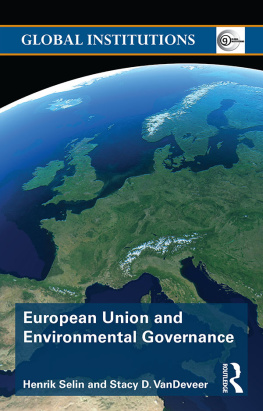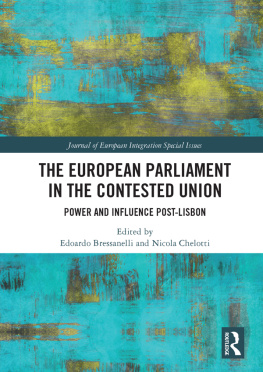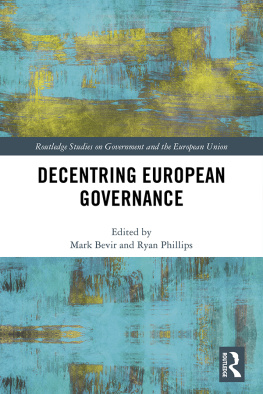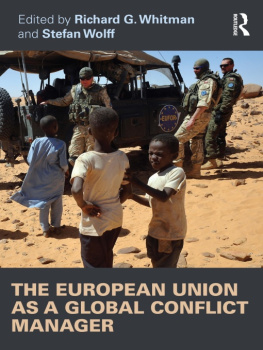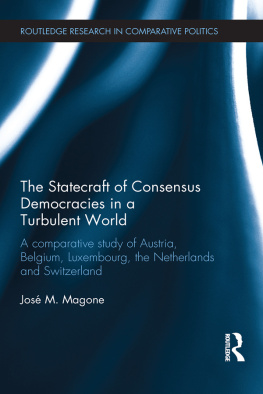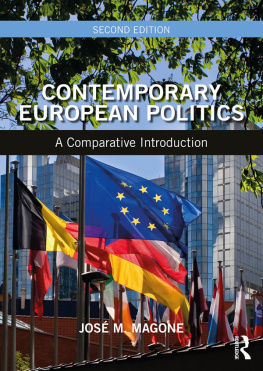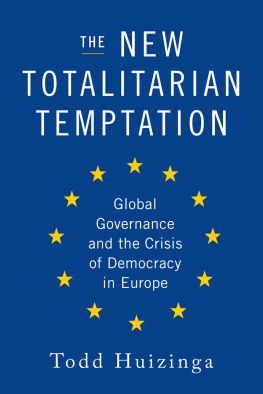José Magone - The New World Architecture: The Role of the European Union in the Making of Global Governance
Here you can read online José Magone - The New World Architecture: The Role of the European Union in the Making of Global Governance full text of the book (entire story) in english for free. Download pdf and epub, get meaning, cover and reviews about this ebook. year: 2005, publisher: Routledge, genre: Politics. Description of the work, (preface) as well as reviews are available. Best literature library LitArk.com created for fans of good reading and offers a wide selection of genres:
Romance novel
Science fiction
Adventure
Detective
Science
History
Home and family
Prose
Art
Politics
Computer
Non-fiction
Religion
Business
Children
Humor
Choose a favorite category and find really read worthwhile books. Enjoy immersion in the world of imagination, feel the emotions of the characters or learn something new for yourself, make an fascinating discovery.
- Book:The New World Architecture: The Role of the European Union in the Making of Global Governance
- Author:
- Publisher:Routledge
- Genre:
- Year:2005
- Rating:5 / 5
- Favourites:Add to favourites
- Your mark:
- 100
- 1
- 2
- 3
- 4
- 5
The New World Architecture: The Role of the European Union in the Making of Global Governance: summary, description and annotation
We offer to read an annotation, description, summary or preface (depends on what the author of the book "The New World Architecture: The Role of the European Union in the Making of Global Governance" wrote himself). If you haven't found the necessary information about the book — write in the comments, we will try to find it.
José Magone: author's other books
Who wrote The New World Architecture: The Role of the European Union in the Making of Global Governance? Find out the surname, the name of the author of the book and a list of all author's works by series.
The New World Architecture: The Role of the European Union in the Making of Global Governance — read online for free the complete book (whole text) full work
Below is the text of the book, divided by pages. System saving the place of the last page read, allows you to conveniently read the book "The New World Architecture: The Role of the European Union in the Making of Global Governance" online for free, without having to search again every time where you left off. Put a bookmark, and you can go to the page where you finished reading at any time.
Font size:
Interval:
Bookmark:

2 Park Square, Milton Park, Abingdon, Oxon OX14 4RN
711 Third Avenue, New York, NY 10017, USA
Product or corporate names may be trademarks or registered trademarks, and are used only for identification and explanation without intent to infringe.
The new world architecture: the role of the European Union in the
making of global governance /Jos M. Magone
p. cm.
Includes bibliographical references.
ISBN 0-7658-0279-1 (cloth: alk. paper)
1. European Union countriesForeign relations. 2. European Union
countriesPolitics and government. I. Title.
341.242dc22 2004063651
- vi
- CEDSP Common European Defense and Security Policy
- CFSP Common Foreign and Security Policy
- EC/EU European Community/European Union
- ECHR European Court of Human Rights
- EUROMED Euro-Mediterranean Partnership
- EMU Economic and Monetary Union
- FTAA Free Trade Area of the Americas
- IMF International Monetary Fund
- MERCOSUR Southern Cone Common Market
- NAFTA North Atlantic Free Trade Area
- NATO North Atlantic Treaty Organization
- PHARE Pologne et Hongrie: Actions pour la Reconversion Economique/Poland and Hungary: Actions for Economic Reconversion
- SEA Single European Act
- SEM Single European Market
- TA Treaty of Amsterdam
- TAFTA Transatlantic Free Trade Area
- TEU Treaty of the European Union/Treaty of Maastricht
- UN United Nations
- UNDP United Nations Development Program
- US United States
- WTO World Trade Organization
- A Austria
- B Belgium
- BG Bulgaria
- CR Czech Republic
- CY Cyprus
- D Germany
- DK Denmark
- E Spain
- EL/GR Greece
- ES Estonia
- F France
- FIN Finland
- H Hungary
- I Italy
- Ir Ireland
- LIT Luxembourg
- LT Lithuania
- MT Latvia
- NL Malta
- NK Netherlands
- P Norway
- PL Portugal
- PL Poland
- ROM Romania
- S Sweden
- SL Slovakia
- SV Slovenia
- TK Turkey
- UK United Kingdom
The European Union and the New World Architecture
Font size:
Interval:
Bookmark:
Similar books «The New World Architecture: The Role of the European Union in the Making of Global Governance»
Look at similar books to The New World Architecture: The Role of the European Union in the Making of Global Governance. We have selected literature similar in name and meaning in the hope of providing readers with more options to find new, interesting, not yet read works.
Discussion, reviews of the book The New World Architecture: The Role of the European Union in the Making of Global Governance and just readers' own opinions. Leave your comments, write what you think about the work, its meaning or the main characters. Specify what exactly you liked and what you didn't like, and why you think so.

